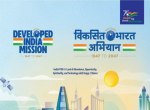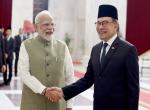“Never start a paper with the first person singular” was the advice that my English teacher gave me in the first standard in my school in Lahore, St. Anthony’s High School. On 10th February 2014, Barkha Dutt interviewed Delhi Chief Minister Arvind Kejriwal before a studio audience, which was broadcast, probably live, on the NDTV 24x7 channel. What one saw and heard was deeply disturbing. One is acutely aware of the fact that in metropolitan India, which represent six percent of our total population and in Delhi, where less than one percent of the population lives, there is a great deal of discontent because of lack of meaningful central, state or local government and the inefficiency and corruption which has grown out of this. This could easily be handled by firm, principled, honest government, but nowhere is there much evidence of the will to govern and provide good government to the people. In Gujarat and Madhya Pradesh, the situation is better, but our so called liberals and activists have such loathing for BJP that neither Narendra Modi nor Shivraj Singh Chouhan is acceptable to them. It is from the miasma of political despair that Kejriwal and Aam Aadmi Party have been born and because they at least promise to be different large sections of society have been attracted to them. There can be no other reason for the rout of the Congress in the NCT of Delhi elections and the strong signature of Aam Aadmi Party in the Vidhan Sabha.
Those whom no one (including I) thought could make a strong showing not only managed to get 28 seats out of 70 in the Assembly, they also came to power with an ill advised Congress deciding to support a minority government. To madly mix metaphors, Congress now not only finds itself hoisted by its own petard, it is also on the horns of a dilemma. Withdraw support, let the government fall and enable Kejriwal to project himself as a martyr who has been sacrificed because he dared to innovate. Continue support, enabling Kejriwal to enact legislation which, while constitutionally unacceptable and, therefore, not to be signed into law by the Lt. Governor, would still project Kejriwal as the champion of the people. What Kejriwal hopes to get out of this is many more seats in the NCT of Delhi Assembly (he estimates 50 seats) and some in Parliament at the next election. What the Congress gets is a fear of extinction in Delhi. What BJP hopes to get is the entire bowl of cream as the two cats claw each other to shreds. What a scenario! Does one see shades of the last days of the Weimar Republic?
There was a corporal of Austrian origin in the German Army of the Kaisar during the First World War called Adolf Schikelgruber, who later attained great notoriety as Adolf Hitler. By profession he was a painter, not an artist but an actual painter of walls, doors and windows, etc. He took the defeat of Germany in the First World War almost as a personal affront and shared with the Junker class officers of the army the view that it is not Germany which had lost but rather that the moneybags, the unscrupulous businessmen, who had betrayed the nation. The Treaty of Versailles imposed severe reparations on Germany, transferred German speaking Alsace-Lorraine to France from which Prussia had wrested it at the end of the Franco Prussian War of 1869-70, allowed French and other allied occupation of the industrially important Ruhr, caused the Kaiser to abdicate, thus ending the monarchy and generally imposed on Germany humiliating conditions which patriotic Germans could not stomach. A republic was established under the Weimar Constitution, thus named because it was framed and finalised in the resort town of Weimar, but the largely Prussian led army, though considerably reduced in size, remained intact. The jingoistic military ethos of Prussia was kept alive by a band of dedicated Generals and other senior officers and whereas the republic soon went down the drain because of a weak government and a struggling economy, the army quietly tried to rebuild itself with the sole objective of restoring the dignity and power of Germany. Corporal Adolf Schikelgruber, initially an observer but soon to become not only the major but the sole player in the tragedy which engulfed Germany, tried to put together a new political philosophy and wrote a book on this called ‘Mein Kampf’ or My Struggle. This book should be compulsory reading for everyone, especially for students of political science and for those interested in politics, because from it emerged an ideology, party and government so tyrannical, so utterly brutal that by comparison Attila The Hun appears to be a nonviolent saint.
How else does one describe the government of a person which happily killed six million people because they happened to practise Judaism? Hitler’s creed was simple. Germany lost because its government was excessively mild and unfocussed. Therefore, it allowed the Jews and their money power to betray the country and that is why the country was meek and impoverished. Ergo, eliminate the Jews and paradise will return on earth. This he set about to do with single-minded ferocity and simultaneously built up the army and in doing so threw the French out of the Ruhr. He looked for a racially pure Germany in which the Aryans were the super race. Then there were the inferior races of Slav origin who inhabited the countries to the east of Germany, that is Poland, Czechoslovakia, the Soviet Union, etc. The Slavs were inferior to the Aryans and, therefore, Untermenschen, that is subhuman. To the west was France, racially acceptable but culturally decadent. Further west lay Britain, whose people were largely of Anglo Saxon origin and, therefore, Aryan, making them the natural allies of a pure Germany. Replace the decadent political system there by the far healthier Nazi philosophy and there would indeed be heaven on earth.
To achieve all this Hitler needed the power to legislate. When he became the Chancellor (Prime Minister) of Germany in 1933, he led a minority government which came to power because the socialists quarreled amongst themselves like the Congress does in India, the Left was in disarray and the people were looking for a saviour who would rescue them from the misery into which the Weimar government had cast them.
One sees an almost equal scenario with what happened in Delhi recently. People who were disgusted with the previous regime did vote in adequate numbers to give the Aam Aadmi Party a respectable minority status. The Congress, like the Opposition in Germany, felt that Kejriwal could be handled and, therefore, decided to support Kejriwal to form a government. Meanwhile, the BJP sat back to observe the unfolding drama. Like Hitler who persuaded President Hindenburg to invite him to form the government, with outside support, the Congress, too, decided to entice Kejriwal to form a government in Delhi with outside support of the Congress. The parties in Germany, like the Congress in Delhi, felt they could handle Hitler, just as Congress felt that they could handle Kejriwal. Hitler’s first act was to persuade Parliament to enact the “Gestz zur Behbung der Not von Volk und Reich” or “The Law For Removal of The Distress of The People and the Reich”. Under this, Hitler got sweeping powers on legislation through ordinance, surrendered voluntarily by Parliament. This happened on 5th March 1933. On 9th March 1933, just four days later, he abolished the States, thus converting the Federation into a Unitary State. In May 1933, he abolished the trade unions and in July 1933 all parties were abolished, except the Nazi Party. Using the Constitution and mandate of Parliament, Hitler not only destroyed the Weimar Republic, he abolished democracy and became the sole dictator and arbiter of Germany. The horrors which followed till Germany capitulated in May 1945 are well recorded by authors such as William Shirer, Allen Bullock, Trevor Roper, etc., and need not be repeated here. Schikelgruber, the painter, had now become Adolf Hitler, the Fuhrer.
Is Arvind Kejriwal a potential Hitler? The answer is a categorical NO. Is he a demagogue? The answer is an emphatic Yes. Does he want to create a dictatorship? The answer is a somewhat reluctant No because there is a long way to go between being the Chief Minister of a Union Territory and the undisputed leader of India, not a Hitler but certainly a potential Indira Gandhi of the days of the Emergency. Even that is bad enough, because Barkha Dutt’s interview did give glimpses of the innate megalomania and extent of low cunning of Arvind Kejriwal. One is unable to resist the temptation of referring to Kejriwal’s early years as an officer of the Indian Revenue Service who did his best to stay on in Delhi or its vicinity while his colleagues were shunted out to distant places. One is aware of the fact that he took two years study leave and did not fulfill his obligation of serving the government for at least three years on return from study leave. He also sat on the notice given to him in this behalf by government and almost a year later he suddenly took out the paper and flourished it in a public meeting addressed by Anna Hazare, stating that Government was trying to pressurise him not to participate in Anna’s movement. It is for the reader to decide whether this conduct is ethical.
It is a fact that people in India have increasingly found that in their interface with government, they have become the prey and government functionaries have become predators. This has manifested itself in all pervading corruption with which the average citizen had to contend in even petty matters. This has begun to hurt to an extent where it has almost become life threatening. Gradually public anger is mounting and this factor was clearly identified by Anna Hazare and Arvind Kejriwal. Where they pioneered a new path was in using public agitation as a means of focusing public anger and thus concentrating the energy which flowed from it. The highly individualistic, personal experience based anger against corruption, switched from the anecdotal and the personal to a public anger which focused on corruption per se. This was all to the good because the hydra-headed monster of corruption had to be killed.
What causes corruption? Corruption of the type one gets in India is a hallmark of, a necessary corollary to, the inevitably natural outcome of a situation in which the executive government has become weak to the point of impotence and the act of governing itself has almost disappeared. In an executive government driven by a complete lack of ideology, a political system in which immediate expediency overtakes principled government, in which power becomes the sole objective instead of being an instrument for promotion of public welfare, the entire system is bound to become corrupt. The purchase of power itself is an act of corruption and in order to do the act one has to use corruption in order to earn money to buy power. This corruption can only be curbed and destroyed if we first make politics itself more principled. Power must no longer remain the end objective, nor should power be used to buy power the next time round. Public welfare must replace personal aggrandisement as the guiding star of politics. If the Aam Aadmi Party is able to achieve this then, of course, it would be a genuine servant of the people and a saviour of the republic. Is that happening?
Instead of looking at systems, both Anna Hazare and Arvind Kejriwal have found the ultimate remedy for corruption, an institution called the Jan Lokpal. The Scandinavian countries thought of on Ombudsman as early as the eighteenth century, but the objective of the Swedish Ombudsman, for example, is to push government towards genuine, people friendly, open governance and not go around punishing persons guilty of corruption. From good government has flowed a corruption free society. China, on the other hand, has a harsh political system in which those who are corrupt face the grave danger of judicial execution. China has probably executed more persons charged with corruption than any other country has even jailed. The emphasis there is on using the penalty of the law as a deterrent, without trying to find out the flaws in the system which permit or even encourage corruption. Therefore, despite a high level of law enforcement, China is considered one of the most corrupt countries in the world. Whom does Kejriwal want to emulate, China or Sweden? The Jan Lokpal looks very Chinese to me.
The way the Delhi Government is functioning there is no attempt to even conceptualise systemic reforms which would reduce the citizen-government interface, make laws, rules and procedures so simple that anyone can understand them, eliminate all delay in administration so that delay cannot be a weapon for extorting money and then trying to ensure that in a time bound, people friendly manner government work flows smoothly and the people who have contact with government are able to get decisions without any delay and, therefore, without harassment and the need to pay a bribe. This needs very systematic analysis of every rule, every procedure, even of the manner in which the official manning a desk works and then setting in place monitoring systems which ensure that the citizen gets quick remedy from a government office. I am not speaking in the air because thirty-six years earlier as the head of Delhi Development Authority (DDA), I practised precisely what I have preached and though everyone likes to view his own work with rosy tinted glasses, I think the jury did decide that in the short period that I was with DDA, the organisation had certainly become more people friendly, more effective and, therefore, less corrupt. For Kejriwal none of these count because it is either the Jan Lokpal or nothing.
To return to Barkha Dutt’s programme, one was disturbed not because there was anything argumentative or hot tempered about it, but rather because the arguments put forward by Arvind Kejriwal to justify himself appeared prima facie unexceptional, the audience reaction was favourable and the manner in which Barkha herself seemed to hang on to every word uttered by Kejriwal signalled agreement. In trying to justify subsidies, Kejriwal explains that it is about Rs. 250 crores which constitutes the power and water subsidy in a budget of Rs. 40,000 crores. Very convincing, till one disaggregates the subsidy from the Delhi budget and adds it to the budget of the power distribution companies. Their budget is not Rs. 40,000 crores, from their earnings has to be deducted the cost of power supply and the amount mentioned by Kejriwal then becomes a very substantial portion of the net available to the power distribution companies. That fact was hidden by Kejriwal from the audience and naturally out of ignorance people applauded him. He mentioned that the Delhi Golf Club only pays a ground rent of Rs. 15 lakh per year, whereas the property is worth thousands of crores. According to Kejriwal, this gives a subsidy of Rs. 1.5 cores per year to each member. The members do not get a share of the capital cost of the land, which had been allotted by the British when New Delhi was under creation and whose value then was only a few thousand rupees. To extrapolate thereon today’s value of land which is very high if the land could be sold and zero if it cannot is unfair and then to claim that each member is being given a subsidy of Rs. 1.5 crores is a not only a jugglery with figures, it is downright deceit in order to win a point. It is like talking about Coalgate and estimating losses of lakhs of crores of rupees without at the same time stating that in many cases if coal had not been allotted, thermal power plants would either come to a halt or new power stations could not be built. When this sort of argument is expanded to a national scale then what comes to mind is the argument given by Hitler about the Jews and the lies told by Goebbels. This is the stuff of which dictatorships are born.
In the ultimate analysis, only that government is good for this country which has the will to govern, creates systems which are people friendly and builds an environment in which people find gainful employment, wealth increases and equity rules the distribution of wealth. Such a society has no place for corruption and corruption will soon end. One suspects that the Jan Lokpal will only be one more agency that the corrupt will have to appease and, therefore, like every other such agency in India, will become a source of corruption. What an irony if a movement which started as a means of ridding society of corruption becomes an agent for creation of an organisation which adds to corruption.
Published Date: 15th February 2014, Image source: http://economictimes.indiatimes.com









Post new comment